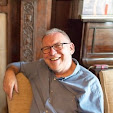To complete my reading on utopias, having sampled 16th century and 19th century versions, I brought things right up to date by trying Rutger Bregman's 2017 book 'Utopia for Realists'. Bregman is a Dutch journalist and author of popular books on history, philosophy, and economics. In 'Utopia for Realists' he makes the case for a more productive and equitable society based on three core ideas - a universal and unconditional basic income for everyone, a working week of fifteen hours, and open borders worldwide with the free exchange of citizens between all nations. Brexit and Covid-19 have somewhat scuppered the last of these, at least for now, but Bregman makes a compelling argument for both a guaranteed basic income and a shorter work week. In an entertaining, polemical style he argues that these are necessary and achievable cornerstones for the sustainability of a modern society and for the health and wellbeing of all its citizens.
Bregman points out that the abolition of slavery, suffrage for women and same-sex marriage were all once considered unrealistic, unreasonable and downright impossible. So, why should it not be perfectly achievable to introduce other seemingly utopian ideas? During the pandemic lockdown in the UK, once a week I observed people - including the Prime Minister - clapping in support of healthcare workers and carers. Despite this very recent and very public show of appreciation, the UK government has recently been highly selective with pay awards for health and social care staff. Generally, the lowest paid public servants - including nurses, allied health professionals and care assistants - have not yet seen that grateful applause converted into a tangible pay increase. How can political leaders so easily ignore those members of society who do the really essential work? How can government so quickly forget the debt they owe to workers who have risked their own lives caring for us and our loved ones, often for a very low salary? Bregman rather colourfully describes this situation in his book; as ever, it seems, "the bankers and the lawyers are polishing turds at the expense of waste collectors and nurses." Bregman partly blames the 'underdog socialists' for this
situation; the disempowered left have failed to make the case for a shift in
societal values. He even has a go at liberal, left-wing academia: "the
greatest sin of the academic left is that it has become fundamentally
aristocratic, writing in bizarre jargon that makes simple matters dizzyingly
complex. If you can't explain your ideal to a fairly intelligent
twelve-year-old, after all, it's probably your own fault. What we need is a
narrative that speaks to millions of ordinary people."
Bregman partly blames the 'underdog socialists' for this
situation; the disempowered left have failed to make the case for a shift in
societal values. He even has a go at liberal, left-wing academia: "the
greatest sin of the academic left is that it has become fundamentally
aristocratic, writing in bizarre jargon that makes simple matters dizzyingly
complex. If you can't explain your ideal to a fairly intelligent
twelve-year-old, after all, it's probably your own fault. What we need is a
narrative that speaks to millions of ordinary people."
The call for a shorter working week, Bregman explains, is not about wanting long, lethargic weekends but about creating more opportunities to spend time on the things that truly matter to us. In keeping with other writers on wellbeing (including me), Bregman is arguing for more meaningful work and more time for more meaningful activity beyond work. He cites, not another aristocratic academic, but the Australian writer and songwriter Bronnie Ware. In 2011 Ware published a memoir, 'The Top Five Regrets of the Dying', based on what she had learnt from her work caring for people with terminal illness. The greatest regrets expressed by people at the end of their lives were, firstly, "I wish I'd had the courage to live a life true to myself, not the life others expected of me" and, secondly, "I wish I hadn't worked so hard."
It may seem utopian to live a life more true to oneself and to spend less time working hard. Many people, especially in times of recession, put up with jobs which lack rewards, meaning or opportunities for creativity. Of course, a shorter working week and a guaranteed basic income would facilitate these goals and Bregman is right to urge us to give these seemingly utopian ideas, and the societal structures standing in their way, serious attention.
Further reading
Bregman, R. (2017) Utopia for Realists: And How We Can Get There. London: Bloomsbury.
More, T. (2012) Utopia. London: Penguin Classics.
Morris, W. (1993) News from Nowhere and Other Writings. London: Penguin Classics.
Ware, B. (2019) The Top Five Regrets of the Dying: A Life Transformed by the Dearly Departing (Second Edition). London: Hay House.












